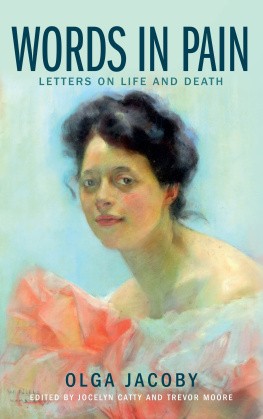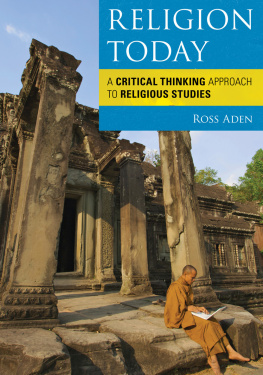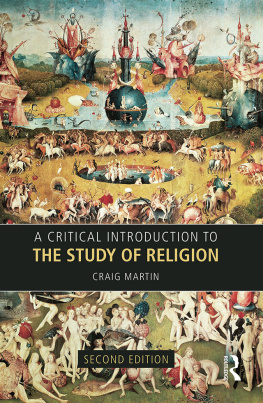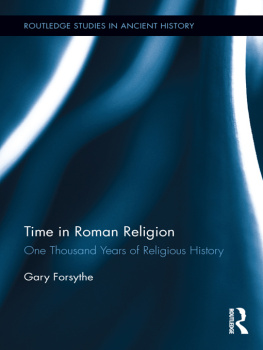Title Page
TIME AND RELATIVE DIMENSIONS IN FAITH
Religion and Doctor Who
Edited by Andrew Crome and James McGrath
Publisher Information
This edition first published in 2013 by
Darton, Longman and Todd Ltd 1 Spencer Court
140 - 142 Wandsworth High Street London SW18 4JJ
Digital edition converted and published in 2013 by
Andrews UK Limited
www.andrewsuk.com
This collection 2013 Andrew Crome and James McGrath
The right of Andrew Crome and James McGrath to be identified as the compilers of this work has been asserted in accordance with the Copyright, Designs and Patents Act 1988.
Acknowledgements
Just before he regenerated, David Tennants Tenth Doctor took the TARDIS on one last trip, thanking all of those who had meant something special to him. These acknowledgements give the editors an opportunity to do something similar. Thanks must first go to David Moloney, Editorial Director at DLT. We are deeply grateful to all the work that David and all at the publisher have put into the volume, and their quick, friendly and remarkably efficient working practice. We would also like to express our thanks to all of our colleagues and students at Manchester and Butler for their interest in the book and being willing to endure our obsession with the show.
All of the contributors to this volume, who have provided such a rich and wide-ranging collection of viewpoints, also deserve special thanks. They have made what could have been a stressful process into one that was hugely enjoyable through their level of insight and willingness to work to deadlines. We would also like to thank all of those who expressed an interest in contributing to this process in its early stages. We were staggered by the response we received when we first floated this project, and hope that all who had an interest in it at that early stage enjoy this book.
A number of other heroic individuals helped in a variety of ways. In particular, Crawford Gribben, Gordon Blows and David Butler have all offered useful advice or material at key moments in this books development. Jon Ainscough, Stef Elstub, Helen Hardwick and Lizzie Slingsby provided insightful discussions on individual episodes (and lots of tea) during the final editing process. Their contributions to the debate over whether we called this book Time and Relative Dimension in Faith (as our inner-fans demanded) or whether to go with (as we eventually did) Dimensions were particularly helpful, as were the opinions of Sam Carey and Daniel Rozday as non-fans. The reasoning behind our fan-baiting title is laid out in our introduction.
Finally, our thanks go to our families and friends, and to all those who share a love of Doctor Who with us, or have had to endure our addiction. When he was nine years old, Andrew Cromes mother grew so frustrated with her sons obsession that she told him to focus on learning about something useful (like history) rather than things like UNIT dating controversies. This book is, in many ways, a (very) belated response to that challenge. In its many forms Doctor Who inspires, challenges, excites and asks us important questions about who we are. This book tries to examine, from a variety of perspectives, why Doctor Who is so good at asking these questions, and why they continue to appeal to us today. As Doctor Who increasingly grows its fanbase (now including Andrews mum!), this book tries to look at why its appeal is so wide. Time and Relative Dimensions in Faith is therefore dedicated to anyone who has ever been moved, thrilled and excited by the Doctors adventures. As the show celebrates its fiftieth anniversary this year, we look forward to seeing exactly where it goes next.
Introduction
Andrew Crome
At one time, generations stood entranced by it. Knowing its key texts and the enemies vanquished by its hero was a part of every English childhood. The stories of demons defeated and people set free; of ordinary men and women swept into a story greater than themselves; of a man who died and was raised from death captivated all those who came across it. Those gatekeepers left in charge of this phenomenon looked out with growing confidence. It would continue to go from strength to strength; it was destined to be embraced by generation after generation. But then, suddenly, interest began to decline. The confidence of an earlier era was revealed to be complacency as those who had shown weekly commitment began to drop away. Children were no longer interested in what (to them at least) appeared dull and dated. Desperate measures aiming to rekindle interest through nostalgia failed miserably. Revamps, modern music, even esoteric clothing were all tried with little effect. And by the early 1990s it seemed dead in the water.
Then something unexpected happened. The most committed followers continued to believe. New texts, different approaches and fresh voices suggested that it could be reimagined for a new century. Unsurprisingly, there were disagreements - how should their hero be represented? What were the acceptable boundaries he could transgress? And, of course, which of his adventures should be considered part of the canon? While the answers to these questions differed, the core followers revealed that they never gave up the faith. And like its hero, quite suddenly, interest began to rise again. The phenomenon was reborn and appeared more alive and relevant than ever. And by 2013, the concept that had been confidently written off as a throwback to a forgotten age twenty years earlier was more visible and influential than ever before.
This is, of course, the story of Doctor Who s triumphant return to our television screens, first in the UK and then across the world. However, it could just as easily be a description of the role of religion in British life, at least according to one recent wide-ranging survey of the subject by a group of sociologists, historians and theologians.
Time and Relative Dimensions in Faith: Religion and Doctor Who is a collection of academic (but accessible) articles which examines these (and many other) religious themes and ideas within Doctor Who, as well as looking at responses to religion in audio adventures, online communities and wider fandom. Much like the TARDIS itself, this book offers a way of exploring a number of different worlds; a variety of communities, philosophies and historical periods. Yet while the TARDISs initials stand for Time and Relative Dimension in Space, studies of religion often suffer by being narrowly confined to particular faith traditions or academic approaches. The worlds of different faiths and faith communities which have used Doctor Who are as wide as the universe the Doctor traverses, and this calls for a similarly eclectic approach. This collection therefore examines the history and relative dimensions across the landscape of contemporary Religious Studies, Religious History and Theology.
Readers might, of course, be sceptical of the benefits of examining religion and Doctor Who side by side. Indeed, at first glance they might appear to have little connection with one another. We are certainly not suggesting that Doctor Who should be viewed as focused primarily on religion. Even the editors of this volume do not sit down to watch Doctor Who in the expectation that it will deal with deep religious issues - which is not to say that we arent very pleasantly surprised when it does focus on such things! As Robert Pope notes in his work on religion and film, people usually watch movies and shows like Doctor Who to be entertained, not to engage with deep philosophical and theological issues. This is an important point which can easily be forgotten in academic work on religion and popular culture. Nonetheless, as Popes own work shows, just because something exists primarily to entertain, does not mean that religious themes cannot be dealt with in highly complex ways, and those themes later debated, reinterpreted and engaged with in fandom and in wider popular culture. Indeed, digging a little into Doctor Whos own rich history reveals that different presentations of religion, religious themes and critiques of religious positions have been present in the series from 1963 until the present day. We would therefore suggest that there are a number of reasons for examining religion and Doctor Who together.
Next page




